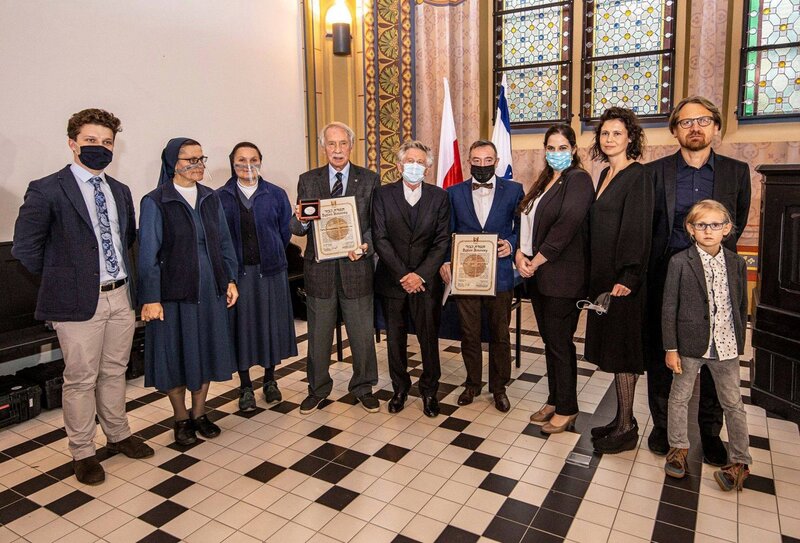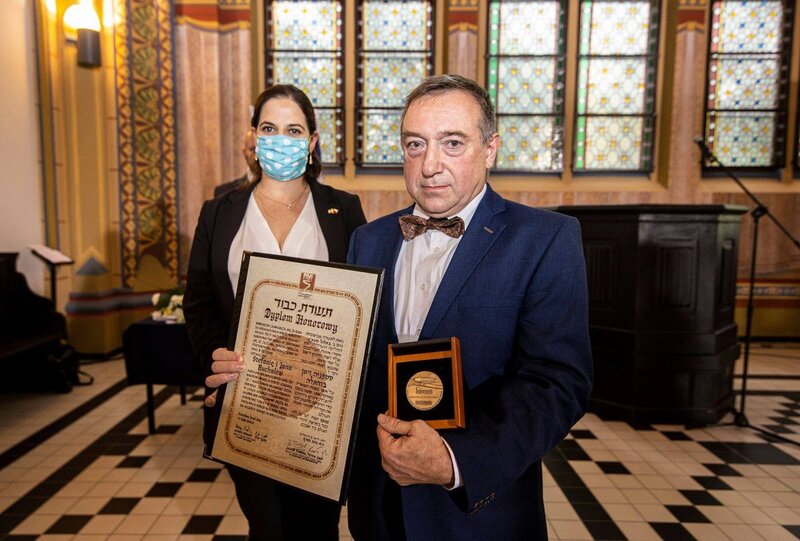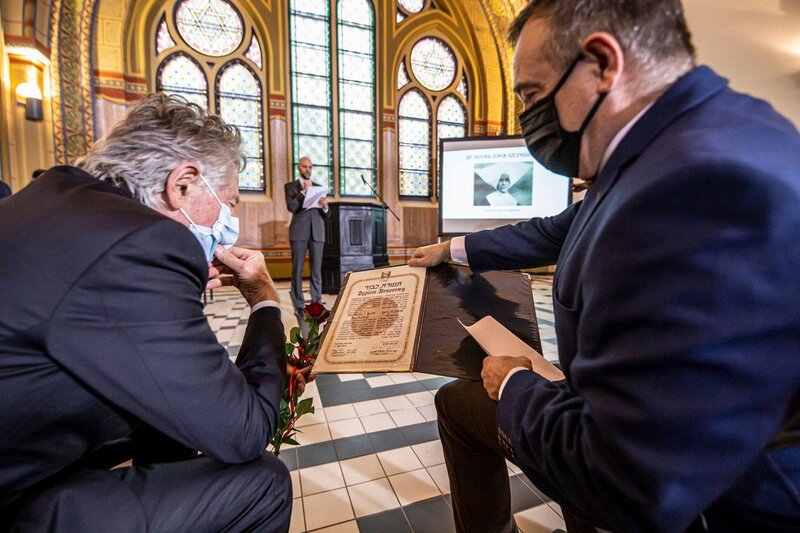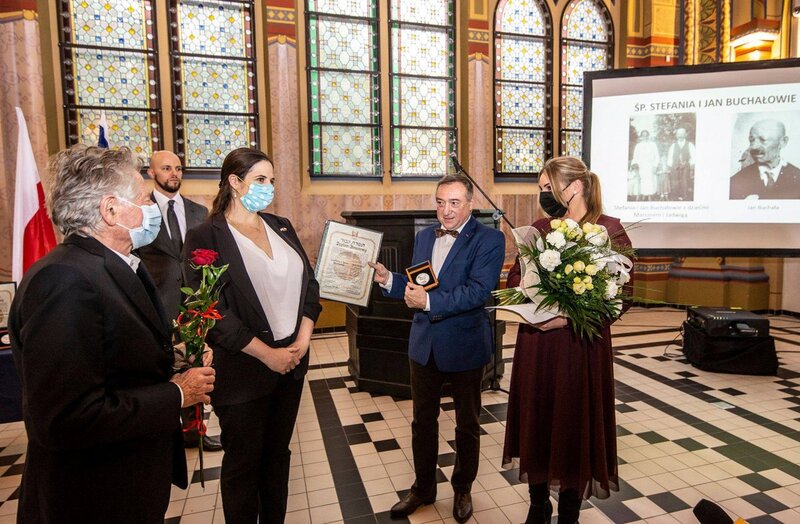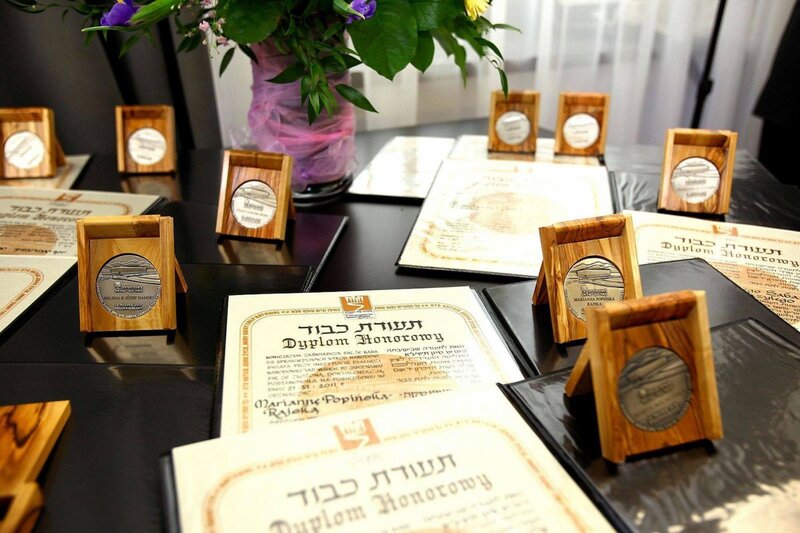Righteous Among the Nations is an official title awarded by Yad Vashem on behalf of the State of Israel and the Jewish people to non-Jews who risked their lives to save Jews during the Holocaust. Among them are many peasant families who, like the Buchałas, provided shelter to the persecuted on their farms, despite strict German policy of punishing every form of aid with death. Too often the rescuers were not as fortunate as Roman Polański’s helpers (take the case of the Ulma or Baranek families, to name but two), and paid with their lives for their humanitarian actions. Yet, they rescued tens of thousands and would not get discouraged by the 15 October 1941 Ordinance of the General Governor Hans Frank, introducing the death penalty for Jews leaving the ghetto and Poles aiding or hiding them.
During the Second World War, the Buchała family hid on their farm a young escapee from the Cracow ghetto. Had it not been for their dedication and courage, the world might not have heard about Roman Polański, who after the war became a renowned film director. The maker of the award-winning "The Pianist", just like its main character Władysław Szpilman lost his relatives in the Holocaust and narrowly escaped death himself. Polański's mother and grandmother died in KL Auschwitz, but the 10-year-old boy was smuggled out of the Cracow ghetto by his father. Moses Liebling used his valuables to buy a safe haven for his son with two Cracow families, and then disappeared in KL Mauthausen-Gusen that he barely survived.
In the summer of 1943, Roman was taken over by the Buchałas, a poor and uneducated peasant family living in the village of Wysoka, 30 kilometres from Cracow. Years later, the director recalled that period of his life as hardly idyllic due to difficult conditions, yet stressed that the Buchałas, barely able to feed their own children, never gave up on their Jewish guest and every day risked their lives for him. He spent with them a full year. After the war, Polański unsuccessfully tried to find the family to whom he owed his life; it was only thanks to the help of people involved in the production of the documentary "Polański, Horowitz" that he managed to get in touch with Stefania and Jan Buchała’s grandson, Stanisław.
Today, on behalf of Stefania and Jan Buchała, Stanisław accepted the specially minted medal and title of Righteous Among the Nations.
Photo of the medal courtesy of Kancelaria Senatu.
Repressions for helping Jews
No less than 467 people were killed for aiding Jews – point out Aleksandra Namysło and Martyna Grądzka-Rejak, the authors of “Repressions for helping Jews in the occupied Polish lands during the Second World War”.
http://https://ipn.gov.pl/en/news/3969,Repressions-for-helping-Jews.html?search=94014993613247
It was our national duty to establish this day, Dr. Mateusz Szpytma on the Remembrance Day of Poles Rescuing Jews under German Occupation
Poles are the nation which has the biggest number of trees in Yad Vashem site. And yet not only in the world, but even in Poland, it was difficult for this fact to enter the collective consciousness. Perhaps people lacked individual human stories, which would show the heroism of individuals and even entire families, who risked the lives of their loved ones, including young children.
‘We couldn’t but help them. They were our neighbours’ – An Interview with Eugeniusz Szylar, Righteous from Markowa
In connection with the Polish National Day of Remembrance of Poles Rescuing Jews under German Occupation we would like to refer back to an IPN interview with Eugeniusz Szylar, a Righteous from Markowa
The 150th anniversary of the birth of Mother Matylda Getter - 25 February 2020
Mother Matylda Getter from the Congregation of the Franciscan Sisters of the Family of Mary, risking her own life, saved several hundred Jewish children sentenced to extermination by the German occupiers. On 25 February at 8.00 a.m. the President of the IPN Dr. Jarosław Szarek will pay tribute to Matylda Getter at her resting place in the Powązki Cemetery in Warsaw (plot F / G, row 2, places 26–31, entrance from Powązkowska Street - IV).
